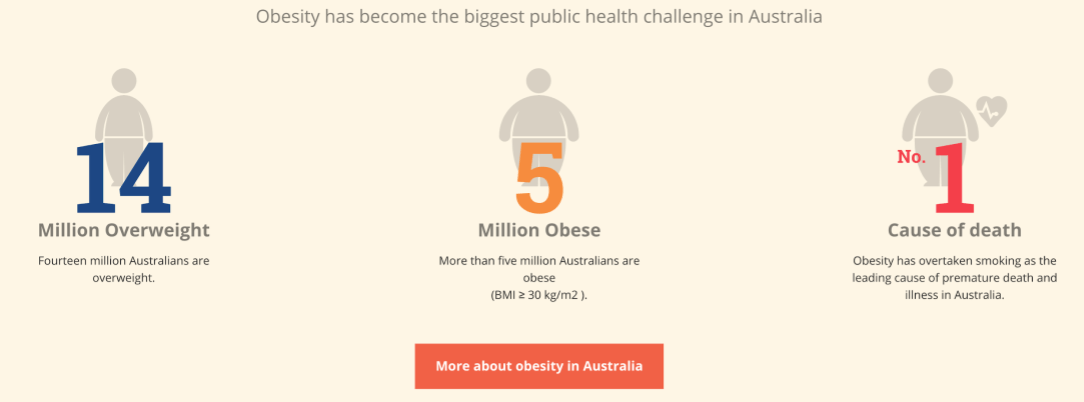About Obesity
Obesity: Definition and Global Impact
Obesity is a chronic medical condition characterized by excessive body fat accumulation that impairs health. It is typically measured using Body Mass Index (BMI), where a BMI of 30 or higher indicates obesity. This condition develops when caloric intake consistently exceeds energy expenditure, leading to abnormal fat storage.
Epidemiology of Obesity
Obesity has reached epidemic proportions globally, with developed nations particularly affected. In countries like Australia, obesity rates have risen dramatically in recent decades. This upward trend is concerning because obesity significantly increases the risk of numerous health complications, including cardiovascular diseases, type 2 diabetes, and certain cancers, while also contributing to premature mortality.
How Does Obesity Affect You?
- preventable, non-communicable diseases,
- shortened life-expectancy and
- impaired quality of life.
- Type 2 Diabetes,
- Heart disease,
- Hypertension,
- Stroke,
- Musculoskeletal disorders and
- Impaired psychosocial functioning.
Changing Perceptions
Before
Today
What are the Causes of Obesity?
- Genetics
- Lack of exercise
- Overeating
- Poor diet
Symptoms of Obesity
- Low back pain or Backaches.
- Feeling tired all the time.
- Heavy sweating.
- Joint pain (especially weight-bearing knee and hip joints).
- Low confidence or self-esteem.
- Shortness of breath.
- Snoring or Sleep Apnoea.
Obesity Diagnosis
- Blood tests.
- Physical exam.
- Review of family history.
- Waist measurement.
Classification of Obesity
| Category | BMI Range |
| Normal Size | 18.9 to 24.9 |
| Overweight | 25 to 29.9 |
| Class I, Obesity | 30 to 34.9 |
| Class II, Serious Obesity | 35 to 39.9 |
| Class III, Severe Obesity | 40 and greater |
Why Treat Obesity?
- Arthritis
- Certain cancers
- Coronary heart disease
- High blood pressure
- Psychological conditions
- Respiratory disorders
- Sleep apnea
- Stroke
- Type two diabetes
Obesity Treatments
Several strategies are available to manage and treat obesity, including:
- Dietary
- Exercise
- Medication
- Behavioral interventions
While these methods may lead to modest weight loss and health improvements, their long-term effectiveness is often limited, particularly in individuals with severe or long-standing obesity (Apovian et al., 2015; Wadden et al., 2012).
For those affected by obesity bariatric surgery has been shown to be the most effective and durable treatment option. It not only leads to significant and sustained weight loss but also improves or resolves many obesity-related comorbidities such as type 2 diabetes, hypertension, and obstructive sleep apnea (Schauer et al., 2017; Arterburn et al., 2020). As such, bariatric surgery is considered the gold standard for long-term obesity management in appropriate candidates.









